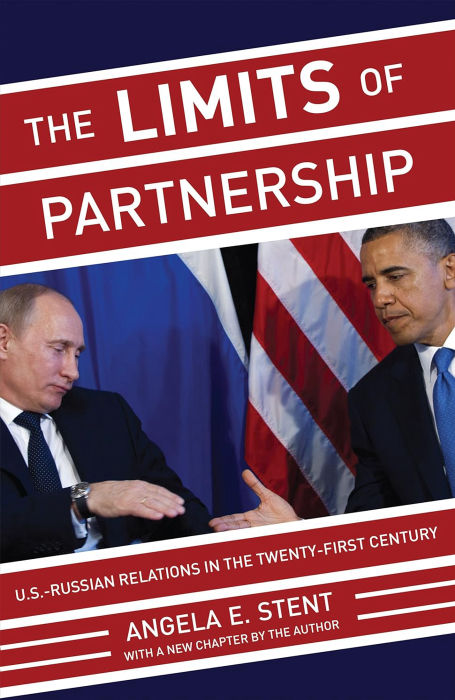Books
Angela E. Stent
The Limits of Partnership
U.S.-Russian Relations in the Twenty-First Century
Angela Stent’s The Limits of Partnership is a masterclass in unraveling the tangled web of U.S.-Russian relations since the fall of the Soviet Union. With the stakes as high as nuclear confrontation and the promise of partnership repeatedly dashed, Stent’s narrative is as gripping as it is sobering. Each attempt at reset seems to end in renewed suspicion, revealing just how deep the divides run. This book is essential for anyone seeking to understand why, after decades of diplomacy, the two powers remain locked in a cycle of cooperation and conflict.
Stent’s book provides a comprehensive and nuanced analysis of U.S.-Russian relations from the early 1990s through the Ukraine crisis and beyond. Drawing on her experience as a high-level adviser to multiple U.S. administrations, she explores the persistent challenges that have thwarted meaningful partnerships between Washington and Moscow. Stent identifies six core areas of contention—nuclear arms control, nonproliferation, the post-Soviet space, European security, the Middle East, and Russia’s domestic politics—demonstrating how each has repeatedly tested the limits of cooperation. She traces four major “resets” in the relationship, showing how each began with optimism but ended in disappointment, often due to mismatched priorities and deep-seated mistrust rooted in the Cold War.
A key strength of the book is its focus on the personal relationships between leaders—Clinton and Yeltsin, Bush and Putin, Obama and Medvedev—and how these dynamics have both helped and hindered progress. Yet, as Stent convincingly argues, the main obstacles are structural: Russia’s determination to regain great power status and be treated as an equal, and America’s tendency to underestimate Russian grievances and ambitions. The book also highlights the role of Europe as a critical third player and explores the impact of NATO expansion, the Kosovo war, and the ongoing disputes over Ukraine and Georgia. Stent’s analysis is balanced and pragmatic, advocating for engagement where possible but warning against illusions of easy partnership.
What makes The Limits of Partnership stand out is Stent’s ability to synthesize a vast array of political, historical, and personal factors into a clear, accessible narrative. Her firsthand insights and objective approach provide readers with a thorough understanding of why U.S.-Russian relations remain fraught, despite moments of genuine cooperation. The updated edition’s coverage of the Crimea annexation and Ukraine war adds timely relevance, making this book indispensable for policymakers, scholars, and anyone interested in the future of global security.

